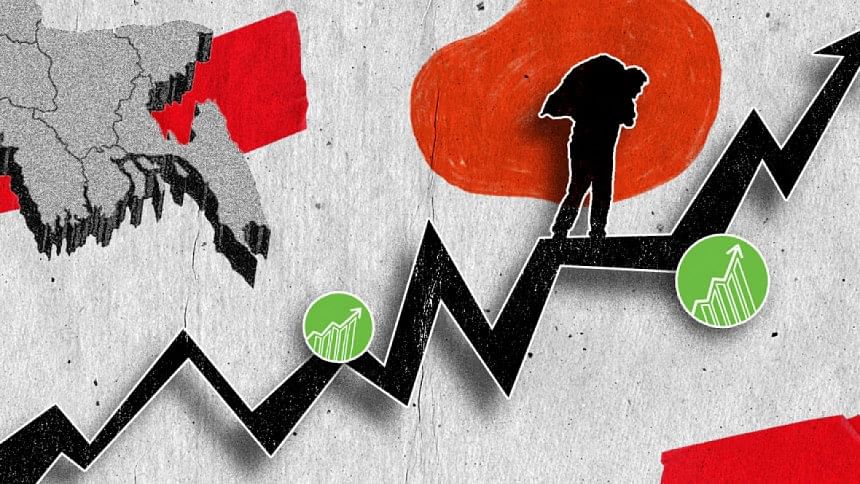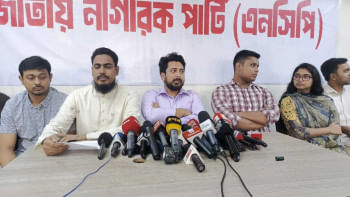We must give our expatriates due recognition

If any Bangladeshi is asked what their country's most significant achievement is, the first thought that will pop up is the Liberation War of 1971. While the freedom fighters fought in the battlefield, Bangladeshi expatriates played a vital role from afar. But it wasn't just in 1971; the expatriates have always supported this country's development.
After the war, Bangladesh was one of the poorest countries in the world. But over the last decade, we have become one of the fastest-growing economies, heavily fuelled by remittance, among other contributors. In the previous fiscal year, our migrants sent home almost $22 billion, six times higher than the total foreign aid or foreign direct investment the country received. Because of this remittance, Bangladesh is no longer considered a poor country and is much less dependent on foreign aid.
According to the World Bank and the Global Knowledge Partnership on Migration and Development report, Bangladesh is the world's seventh largest remittance recipient. Now we must ask ourselves: have we been able to recognise the contribution of our expatriates, who played an essential role starting from the Liberation War to today's prosperity? The reason for asking this question is because today, we are celebrating National Expatriates Day for the first time in the country.
Last year, the cabinet decided to observe the day on December 30 every year to recognise the contribution of expatriates, diaspora, and migrants. On this occasion, programmes have been organised in all the districts, including the capital's Bangabandhu International Conference Center.
But it is important to remember that the day should not be observed just for the day; we need to be more understanding and caring for our expatriates. We can even learn from India in this regard.
India is the world's top country in overseas migration and remittance. It celebrates Pravasi Bharatiya Divas (Expatriate Indian Day) on January 9 annually to mark the contribution of the overseas Indian community towards India's development. The day commemorates the return of Mahatma Gandhi from South Africa to Mumbai on January 9, 1915.
To observe the day, India's Ministry of External Affairs, the Federation of Indian Chambers of Commerce and Industry (FICCI), the Confederation of Indian Industries, and the Ministry of Development of North Eastern Region jointly organise a conference on January 8-10 every other year in a selected city of India. This flagship event provides a forum to discuss issues concerning the Indian diaspora. Additionally, the Pravasi Bharatiya Samman awards, the highest Indian award for non-resident Indians and foreign nationals, are given at the event.
Since the first Pravasi Bharatiya Divas in 2003, eminent personalities of Indian origin have been recognised for their contribution. Apart from this, there's a special exhibition at the conference on the diaspora Indians who contributed to the freedom movement.
Regrettably, even after 52 years of independence, we have not been able to properly recognise the expatriates who contributed to the Liberation War. It was because of them that countries around the world also supported Bangladesh. These contributions should be highlighted on National Expatriates' Day.
According to the Bureau of Manpower, Employment and Training (BMET), over 12 million Bangladeshis work in different countries, of which 75 percent are in Saudi Arabia, United Arab Emirates, Qatar, Kuwait, Oman, and Bahrain. Besides, there are Bangladeshi migrants in Malaysia, Singapore, Brunei, Jordan, Lebanon, Italy, and South Korea. Meanwhile, diaspora and non-resident Bangladeshis in various countries, including the UK, US, Canada, Australia, Germany, and France, are regularly contributing in different sectors.
Despite contributing so much, expatriate Bangladeshis have to face many hassles to get proper services or recognition, which needs to be addressed. Besides, the state should take steps to use their skills and expertise, and encourage them to invest in Bangladesh. Recognition is the first step. The government can develop a digital portal for our expatriates, especially for those who bring glory to the country. The purpose of National Expatriates' Day will be served only if we can recognise their contribution.
Shariful Hasan is associate director of BRAC Migration Programme and Youth Platform and a columnist.
Views expressed in this article are the author's own.
Follow The Daily Star Opinion on Facebook for the latest opinions, commentaries and analyses by experts and professionals. To contribute your article or letter to The Daily Star Opinion, see our guidelines for submission.

 For all latest news, follow The Daily Star's Google News channel.
For all latest news, follow The Daily Star's Google News channel. 










Comments